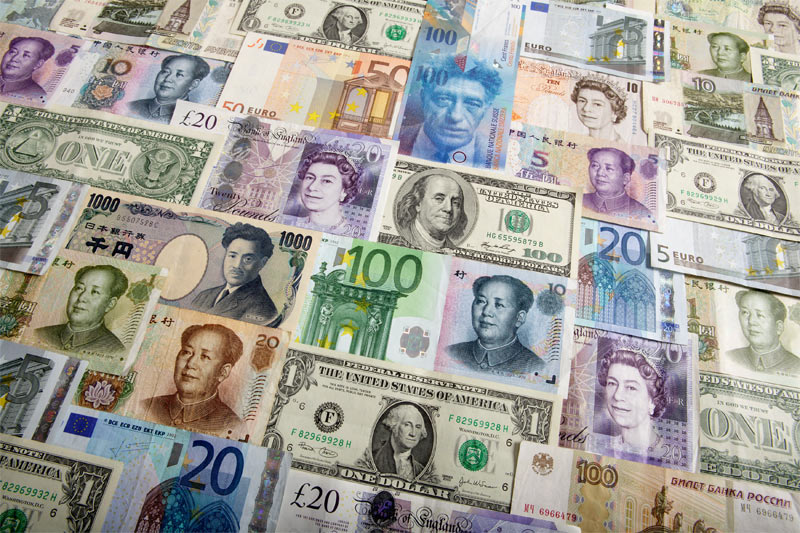Intel stock extends gains after report of possible U.S. government stake
* Pressure building on naira currency as oil prices drop
* Nigeria's main share index hits more than 2-year-low
* President tells central bank to ban FX access for food
importers
* Traders await clarity on implementation of proposed FX ban
(Updates with auction result, adds naira quote, background)
By Chijioke Ohuocha
ABUJA, Aug 14 (Reuters) - The Nigerian central bank
auctioned treasury bills on Wednesday at higher rates to try to
lure foreign investors, hours after it was announced that the
president told the bank to ban access to dollars for food
imports.
Pressure has been building on the naira currency as oil
prices drop and foreign investors book profits on local bonds in
response to falling yields. Crude sales account for 90% of
foreign exchange earnings and two-thirds of government revenues
in Nigeria, Africa's top oil producer.
The bank auctioned 34.4 billion naira worth of bills, paying
12% for the longest tenor one-year paper, up from 11.2% it paid
at its last sale, on ample demand for the bills, traders said.
Banking stocks .NGSEBNK10 fell 1.26% on Wednesday, to help
drag the main share index .NGSEINDEX to a more than two-year
low as negative sentiment persisted on the stock market.
Traders said the bank told them to increase their rates at
the bills auction from last auction rates as the central bank
tries to lure foreign inflows.
The central bank last month shifted policy to try to force
banks to lend to help revive an economy stuck with low growth
after a recent recession. But with falling oil prices and
foreign investors taking profits, the naira is regaining focus.
On Friday, the naira NGN= eased to 364 per dollar, from a
quote of 363.50 as falling oil prices tightened liquidity on the
currency market. The currency was quoted at 364 on
Wednesday on thin liquidity, traders said.
A dollar shortage was initially caused by a slowdown of
foreign inflows after local debt market yields declined.
UNCERTAINTY
"As the naira came under increasing pressure ... stepping up
demand management policies in the foreign exchange market
furthermore suggests that the central bank faces increasing
problems propping up the currency through open market
operations," said Malte Liewerscheidt, vice president of Teneo
Intelligence.
Nigerian President Muhammadu Buhari on Tuesday told the
central bank to stop providing funding for food imports, his
spokesman said, in a further sign of pressure on the
currency.
A spokesman for the central bank, which is an independent
body, has not responded to text messages and phone calls seeking
a comment on whether or not the request will be heeded.
Traders said the market was waiting for more information on
how such a ban would be implemented, especially for importers
with existing lines of credit.
"This adds to the level of uncertainty in the market. How
the central bank would implement this remains unclear," one
trader said. "Some of the items may already be included in the
earlier ban."
In 2015 the central bank banned access to foreign exchange
for 43 items in a bid to curb dollar demand, though it continued
to sell dollars to offshore investors to boost confidence.
Nigeria, which has Africa's biggest economy, operates a
multiple exchange rate regime, which it has used to manage
pressure on the currency.
The official rate of 306.90 is supported by the central bank
but the traded rate of 364 is widely quoted by foreign investors
and exporters.
